Politics
Elseddik Haftar, the Other Libya
In the Haftar family, we know the father: Marshal and leader of the Libyan National Army (ANL). A Libyan tutelary figure. Since the fall of Muammar Gaddafi on October 20, 20112, who died in the city of Sirte, a stronghold of the Ferjany tribe, from which the family originated, Khalifa Haftar has reigned over the east of the country. It is often ignored that the Benghazi master has eight sons – certainly one of his only points in common with the former “guide of the revolution”.
Elseddik Haftar – When charisma rhymes with leadership
The eldest, Elseddik is a doctor of international law. He wears the suit and the fine moustache with elegance. Nothing to do with the trellis, the uniform of the members of the clan. Far from the sound of bullets, Dr Elseddik prefers start-ups and economic and social development programs. A builder at heart, Doctor Elseddik envisages the reconstruction of a fragmented and clanified Libya.
He wants it pacified, reunited and on the move….An influential figure in the field of engineering and infrastructure in Libya, the “Doctor” as he is nicknamed, oversees projects related to the reconstruction and development of roads, buildings and public services in Libyan cities, thus contributing to the improvement of living conditions and the development of community infrastructure.
Its objective: To breathe new life into Libya and thus get out of the deadly impasses that plague the country. More than ten years of conflict have left it in full decline. Two governments, the proliferation of armed militias and terrorist groups. A military, political and social divide without counting on the ever-increasing migration crisis.
Regain your sovereignty
“Take in hand the ongoing reconciliation process in your country, Africa and all the other partners will accompany you there until the general elections which should seal the return to constitutional order”, this exhortation was launched by the leader of the Congolese State Denis Sassou N’Guesso, Chairman of the High Level Committee of the African Union (AU), on July 20, as part of the preparatory meeting for the inter-Libyan reconciliation conference.
A priority – THE priority. Recreate the country’s unity and create security for the Libyan people, bruised by years of lead, and find peace.
“We have to turn the page, turn the bloody page of violence, of hatred to move towards reconciliation. To put my country back on track, all parts of the population will have to take each other by the hand, whatever their tribe, their social class. The urgency today is to save the country from the current situation in which we find ourselves after the events. This country must be built on democratic foundations, that is to say, a multilateral country, where everyone has their place in this reconstruction. This is Doctor Haftar’s vision.
The Future of Libya – the Strength of its Youth
Those under 25 represent almost half of the seven million Libyans, which is to say that their future is crucial for the development of the country. A youth raised in the school of propaganda and the “green book”, a veritable bible of Muammar Gaddafi. A youth, which today dreams of an elsewhere, since its horizon has still not cleared up. In this oil-rich country – it has the largest reserves in Africa – the Libyan population does not see any future.
Galloping corruption, record unemployment rate, and economic crisis direct consequence of political insecurity. Many young people are forced into unregulated and underpaid jobs. As for those under ten, a large number of them do not go to school, the fault for the ten years of conflict.
A reality against which the discreet but influential “Doctor” has decided to attack.
“ The education of boys and girls is a non-negotiable priority for my country. It is essential to give back to this youth, the desire to build and to undertake”. And to financially support innovative projects aimed at young people. But not only… ” It is time to put in place a policy of equality between men and women. The place of the Libyan woman is essential in our society. The right to freedom, the right to work and the right to emancipation. Libya must take this path. »
A Haftar dynasty?
In 2017, Doctor Elseddik joined the very closed circle of the “Eastern Forces General Staff”, a government composed mainly of the sons and relatives of the strongman of Benghazi. To the “Doctor”, Marshal Haftar entrusted diplomacy. The task force, since Elseddik spent his doctorate in Egypt, a country with which the Haftars have kept strong ties. A key position, which could position him favourably to enter the race for succession in place of his father.
One thing is certain: At 49, Doctor Elseddik presents himself as a diplomatic and consensual figure, well-established with many Libyan tribes, one of the political keys to managing this country.
It remains to be seen whether this new challenge will tempt “Doctor” Elseddik HAFTAR.
Originally published at Almouwatin.com
Politics
Syria: Council statement on the lifting of EU economic sanctions
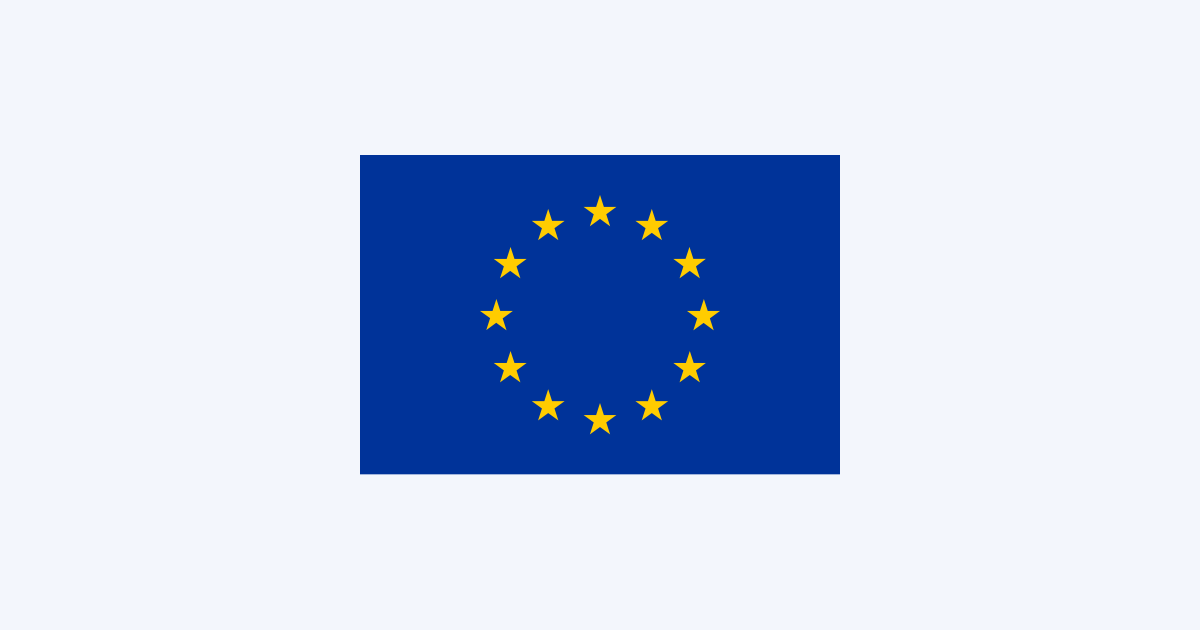
DISCLAIMER OPINIONS: The opinions of the authors or reproduced in the articles are the ones of those stating them and it is their own responsibility. Should you find any incorrections you can always contact the newsdesk to seek a correction or right of replay.
DISCLAIMER TRANSLATIONS: All articles in this site are published in English. The translated versions are done through an automated process known as neural translations. If in doubt, always refer to the original article. Thank you for understanding.
DISCLAIMER PHOTOS: We mostly used photos images that are readily available online, from free sources, or from the people promoting the news. If by any chance it happens that we have used one of your copyrighted photos, please do not hesitate to contact us and we will take it down without question. We do not make profits as this is a not for profit project to give voice to the voiceless while giving them a platform to be informed also of general news, and it is completely free.
Politics
Strategic Steps For Digital Transformation In European Politics

There’s a pressing need for you to understand the strategic steps required for effective digital transformation in European politics. As new technologies emerge, your grasp on how these changes can enhance governance, transparency, and citizen engagement is vital. By examining the EU’s Digital Strategy and incorporating its principles, you can facilitate innovation while tackling the challenges that come with modernising political frameworks. For deeper insights into this initiative, explore the EU’s Digital Strategy and its implications for your political strategies.
Understanding Digital Transformation in Politics
Definition and Importance
Politics encompasses the activities associated with the governance of a country or area, including the debate among individuals or parties having or hoping to achieve power. In the context of digital transformation, this refers to the methods and strategies employed by political entities to leverage digital technologies to enhance their operations, engage with citizens, and improve decision-making processes. Understanding digital transformation in politics is paramount as it enables you to evaluate how technology can shape electoral processes, public policy, and citizen participation.
The importance of digital transformation in politics cannot be overstated. As you engage with varying levels of public discourse, you will notice that these transformations have the potential to increase transparency, promote accountability, and facilitate real-time communication between governments and the public. This shift allows for more inclusive governance, where citizens can have their voices heard more effectively. In doing so, political entities can harness data analytics, social media platforms, and other digital tools to respond to the needs and concerns of the populace.
Current Trends in European Politics
Any analysis of current trends in European politics must include the significant impact of digital media. Political campaigns across Europe have increasingly integrated digital strategies, enabling parties to reach broader audiences and engage directly with younger constituents. In particular, the rise of social media has transformed the political landscape, allowing for real-time engagement and the spread of important information quickly. Enhanced data analytics tools are also being utilised to tailor political messaging and predict voter behaviour, making it an important aspect of modern political strategy.
Definition of what you should be aware of is that the shift towards digitalisation in governance and politics is not without its challenges. Misinformation and disinformation are rising concerns, especially as digital platforms become the primary source of news for many citizens. This dynamic can lead to polarisation and increased political tensions. In leveraging these digital tools, you must navigate these complexities, ensuring that the advantages outweigh the downsides, ultimately fostering a healthier democratic environment in Europe.
Key Drivers of Digital Transformation
While digital transformation in European politics is increasingly becoming important, various factors are driving this shift. You must recognise that adapting to the digital age is not merely an option; it is a necessity for effective governance and public interaction. As political landscapes evolve, the integration of digital tools allows for more transparent, efficient, and accessible processes that engage citizens in unprecedented ways. Moreover, adopting these innovations can significantly enhance the ability of political entities to respond to the ever-changing needs of society.
Technological Innovations
Below the surface of political operations, technological innovations are fundamentally changing how governance is perceived and executed. The rise of artificial intelligence, blockchain technology, and big data analytics is not just reshaping interactions but also enhancing decision-making processes. These advancements enable you to gather insights from vast amounts of data, informing policies and fostering informed debates. Therefore, embracing these technologies can lead to more efficient practices and promote a culture of evidence-based policymaking, increasing the effectiveness of your initiatives.
Public Expectations and Engagement
Along with technological innovations, public expectations are evolving dramatically in this digital era. Citizens are now accustomed to the efficiency and immediacy of digital interactions in their daily lives, and they expect similar responsiveness from political entities. As a result, politicians and public services must adapt to these expectations, utilising digital platforms to engage, inform, and involve the public in the decision-making process actively. This shift is not just about enhancing communication; it’s also about leveraging direct feedback mechanisms that empower citizens to play a more active role in the democratic process.
Consequently, understanding public expectations and engaging with citizens is vital for fostering trust and credibility in political institutions. You must ensure that your digital channels are not just one-way information streams but interactive platforms where diverse opinions can be voiced. By focusing on genuine engagement, you can cultivate a more informed electorate that feels valued and included in governance processes. Failure to meet these expectations may lead to disillusionment and disengagement, jeopardising the very foundations of democracy.
Strategic Framework for Implementation
If you are to successfully navigate the complexities of digital transformation in European politics, it is vital to establish a comprehensive strategic framework. This framework should facilitate a structured approach to integrating digital technologies into your political processes. You will need to assess the current landscape, focusing on both the technological capabilities at your disposal and the readiness of your organisation to embrace change. By fostering a culture that values innovation and adaptability, you are more likely to achieve a seamless transition into the digital era.
If you take the time to develop a strategic framework, you will create a roadmap that guides your efforts in digital transformation. This includes prioritising resources, aligning stakeholders, and ensuring that policies are in place to support your digital initiatives. Moreover, you will want to emphasise digital literacy among your team members, which will serve as a foundation for successful implementation and allow you to respond to future challenges effectively.
Assessing Current Digital Capabilities
Digital transformation begins with a thorough assessment of your existing digital capabilities. You need to evaluate your current technologies, infrastructures, and human resources to identify strengths, weaknesses, and potential areas for improvement. This assessment should involve gathering insights from various stakeholders within your organisation to ensure you have a holistic view of your capabilities. Understanding where you currently stand will enable you to make informed decisions about the technologies and strategies that will best support your transformation efforts.
Furthermore, conducting an in-depth analysis of your current digital landscape will allow you to pinpoint gaps that require immediate attention. As you launch on this journey, consider not only the technical aspects of your capability assessment but also the cultural readiness of your institution. Are your team members equipped with the skills needed to adapt to new digital tools? Are there any existing resistance to change that might hinder progress? Addressing these questions will set a strong foundation for your digital transformation.
Setting Clear Goals and Objectives
Digital transformation thrives on clear goals and objectives that serve as guiding lights for your journey. You must define what success looks like for your digital initiatives and articulate these targets to your stakeholders. This involves translating broad ambitions into specific, measurable, achievable, relevant, and time-bound (SMART) goals that motivate your team and provide direction. Without clearly defined objectives, it can be easy to stray off course and experience frustration along the way.
Goals that are well-articulated not only align your team but also enhance stakeholder engagement by providing a clear understanding of your intended outcomes. Additionally, you should consider both the short-term and long-term objectives to maintain focus on immediate improvements while staying committed to more significant strategic aspirations. Ultimately, emphasising transparent communication and accountability will enable you to measure your progress and celebrate milestones as you advance in your digital transformation journey.
Stakeholder Engagement Strategies
For any digital transformation initiative in European politics, engaging stakeholders is paramount. By involving various interest groups, citizens, and institutions, your strategy will not only gain legitimacy but also create a sense of ownership among participants. You must ensure that your engagement strategies are inclusive and transparent, providing all stakeholders with opportunities to have their voices heard. This collaboration can significantly enhance the quality of the decision-making process, leading to solutions that reflect the diverse needs of the populace.
Building Coalitions and Partnerships
Engagement with other stakeholders can be fortified through the building of coalitions and partnerships. As you connect with different political entities, civic organisations, and even private sector players, you can create a robust network that supports your transformation efforts. Such coalitions can leverage shared resources, knowledge, and skills while also allowing you to address common goals collectively. It is imperative that these relationships are nurtured with mutual respect and open dialogue, enabling a unified front that champions your digital transformation objectives.
Encouraging Public Participation
One effective strategy to enhance stakeholder engagement is to encourage public participation in the digital transformation process. Actively inviting feedback and input from citizens helps to foster a sense of community and reinforces democratic principles. By conducting surveys, public consultations, and workshops, you can gather valuable insights that inform your policies and initiatives. This not only promotes transparency but also boosts public trust in government actions.
The active involvement of the public can yield positive outcomes while also highlighting potential challenges. Engaging citizens in digital initiatives encourages them to advocate for their needs, leading to a more representative and responsive political environment. However, it is vital to approach this engagement thoughtfully, as failing to address the public’s concerns can result in distrust and opposition. Thus, fostering genuine, two-way dialogue is fundamental to the success of your digital transformation efforts.
Measuring Success and Impact
To effectively measure the success and impact of your digital transformation efforts in European politics, you must establish a clear framework for assessment. This involves defining what constitutes success and selecting relevant metrics to evaluate the impact of your initiatives. For instance, various benchmarks can be drawn from the Control-Alt-Deliver: A digital grand strategy for the European Union. These benchmarks can provide you with a foundational understanding of how digital initiatives can enhance political engagement and operational efficiency within your political framework. You should focus on both quantitative and qualitative measures that align with your strategic goals.
Key Performance Indicators
With the right Key Performance Indicators (KPIs), you can track progress and measure the effectiveness of your digital transformation efforts. These KPIs should be tailored to the specific objectives of your initiatives, whether that is increasing voter participation through digital platforms or improving the transparency of governmental processes. By regularly reviewing these indicators, you can ascertain whether your strategies are having the desired impact, enabling you to make data-driven decisions about potential adjustments or enhancements needed to optimise further engagement.
Continuous Improvement Processes
Continuous improvement is vital in ensuring that your digital transformation remains relevant and effective in a rapidly changing landscape. This involves regularly reassessing your strategies, gathering feedback from users, and applying insights to refine your digital initiatives. By adopting an agile mindset, you empower your organisation to pivot quickly in response to new challenges or opportunities, thus fostering an environment of ongoing growth and adaptation.
Also, establishing a framework for continuous improvement allows you to identify bottlenecks and inefficiencies in your processes. This not only helps in enhancing user experience but also promotes a culture of innovation within your organisation. By encouraging constant feedback and being open to change, you can create a responsive digital strategy that evolves with the political climate, ultimately leading to greater engagement and impact in your European political arena.
Challenges and Risks
Unlike traditional methods, digital transformation in European politics presents a range of challenges and risks that can hinder progress. As you navigate this transformative process, it’s necessary to recognise the potential for resistance from both within political institutions and among the electorate. The integration of new technologies can create uncertainty, leading to apprehension about data security, transparency, and the overall efficacy of digital initiatives. Furthermore, the rapid pace of technological change may outstrip your ability to adapt governance structures, leaving you vulnerable to mismanagement or failure.
Identifying Potential Barriers
Against this backdrop, you must identify potential barriers that could obstruct your digital transformation efforts. These barriers may include institutional inertia, where existing bureaucratic structures resist change, and a lack of digital skills among personnel, limiting their ability to engage with new technologies. Additionally, political opposition or public scepticism regarding digital governance initiatives can exacerbate these challenges, hindering collaboration and support for transformation efforts.
Strategies for Risk Mitigation
Below, you will find several strategies for mitigating these risks as you commence on your digital transformation journey. One effective approach is to invest in comprehensive training programs that equip your team with the necessary skills to engage with digital tools competently. Establishing clear communication channels with stakeholders can also facilitate dialogue, ensuring that concerns are addressed and that there is collective buy-in for proposed changes. Moreover, implementing robust data protection measures will reassure the public and decision-makers alike, bolstering trust in your initiatives.
Due to the dynamic nature of digital transformation, it is vital to continuously assess your strategies and adapt as necessary. You can enhance your risk mitigation efforts by regularly analysing feedback from users and stakeholders, along with monitoring technological advancements. This proactive approach not only helps you address emerging challenges but also positions you to harness the full potential of digital tools for effective governance in European politics.
To wrap up
With these considerations, you can see that initiateing on a digital transformation journey in European politics requires a multi-faceted approach. It involves assessing your current digital landscape, developing a clear strategy for the integration of new technologies, and actively involving stakeholders at all levels. By embracing innovative solutions and fostering a culture that values adaptability, you can lead your political environment towards greater efficiency and improved public engagement.
Furthermore, it is imperative to continually evaluate your progress and be open to pivoting your approach as new technologies and societal needs emerge. By doing so, you will not only enhance your political operations but also strengthen trust and transparency with your constituents. Therefore, equip yourself with the knowledge and tools necessary to navigate this digital terrain, thus ensuring that you are well-prepared to meet the challenges of modern governance head-on.
FAQ
Q: What are the primary objectives of digital transformation in European politics?
A: The primary objectives of digital transformation in European politics include enhancing transparency in governance, improving citizen engagement, streamlining public services, and fostering collaboration between various governmental agencies. Additionally, it aims to leverage data analytics for informed policy-making and to ensure that the political landscape is more responsive to the needs of the electorate.
Q: How does digital transformation impact the relationship between citizens and government?
A: Digital transformation significantly changes the relationship between citizens and government by promoting greater accessibility to information and services. Citizens can now engage with political processes through online platforms, making their voices heard more effectively. This transformation also encourages a participatory approach where citizens can contribute their opinions and feedback on policies, thus fostering a sense of ownership and accountability within the community.
Q: What are some common challenges faced during the digital transformation process in politics?
A: Some common challenges include resistance to change from traditional political structures, the digital divide that may exclude certain demographics, data privacy concerns, and the need for substantial investment in technology and training. Additionally, ensuring that all stakeholders are adequately educated and informed about digital tools can be a significant hurdle, as can the integration of new digital systems with existing administrative frameworks.
Q: What role does data security play in the digital transformation of European politics?
A: Data security plays an necessary role in the digital transformation of European politics as it addresses the protection of sensitive information collected during political processes. Ensuring secure systems is vital to foster trust among citizens and to comply with privacy regulations, such as the General Data Protection Regulation (GDPR). Robust cybersecurity measures help prevent data breaches that could compromise electoral integrity and sensitive governmental operations.
Q: How can governments measure the success of their digital transformation initiatives?
A: Governments can measure the success of their digital transformation initiatives through various metrics, such as user engagement levels, the efficiency of services delivered, citizen satisfaction surveys, and the overall impact on decision-making processes. Additionally, analysing the effectiveness of new digital platforms in facilitating public dialogue and participation can provide valuable insights into how well these initiatives are being received and their influence on governance.
Politics
How To Support Families – Effective Policies In European Politics

Just as families are the backbone of society, understanding how to effectively support them through well-designed policies is vital in European politics. In this post, you will discover key strategies that governments can implement to enhance family welfare, focusing on areas such as childcare, parental leave, and financial assistance. By exploring the most successful examples across Europe, you can gain insights into how your advocacy can lead to positive changes that uplift families in your community.
Understanding the Needs of Families
For effective policies to be developed and implemented, you must first comprehend the various needs of families. Families today face an array of challenges, and recognising these needs is crucial for creating policies that genuinely support them. This understanding involves gathering insights into the lived experiences of families, including their economic, social, and emotional challenges. It is imperative to listen to their voices, ensuring that policies are tailored to address the unique dynamics of various family structures.
Identifying Key Factors for Support
The identification of key factors that influence family well-being is crucial in developing meaningful support systems. You should consider various aspects, including:
- Financial stability
- Access to education
- Healthcare services
- Work-life balance
- Social support networks
Recognizing these factors will enhance your ability to advocate for policies that provide tangible support for families, allowing for healthier and more stable environments.
Recognising Diverse Family Structures
Little consideration is sometimes given to the fact that families come in all shapes and sizes. You may find traditional family units alongside single-parent households, blended families, and same-sex couples with children. Each structure has its own set of challenges and strengths that demand tailored support. Understanding this diversity is crucial to ensure that policies address the specific needs of different family types.
Plus, acknowledging and embracing diverse family structures is vital for fostering inclusive environments. Policies should reflect the realities that not all families fit the traditional mould, and by providing flexible support options, you can help families thrive. Failure to consider these nuances can lead to the exclusion of certain groups, thus limiting the effectiveness of policies aimed at supporting family needs. Recognizing the diversity of families ensures that all are supported and valued, paving the way for a more inclusive society.
Crafting Effective Policies
Some policymakers may overlook the deeper needs of families when structuring support systems, leading to gaps in assistance and resources. It is vital for you as a policymaker to engage with families directly and understand the unique challenges they encounter. By doing so, you can create targeted initiatives that address real issues and enhance the well-being of your constituents.
Tips for Policymakers
Any effective policy must be grounded in the practical realities of family life. Here are some vital tips for you to consider:
- Conduct in-depth consultations with families to gather first-hand insights.
- Collaborate with local organisations that are already supporting families to leverage existing resources.
- Ensure that your policies are flexible enough to adapt to changing family dynamics.
- Regularly assess the impact of your policies and make necessary adjustments based on feedback.
Knowing these proactive steps can help you develop robust policies that truly support families in your community.
Importance of Evidence-Based Approaches
To effectively address the needs of families, it is imperative that you adopt evidence-based approaches in your policymaking. This means utilising research and data to inform your decisions, ensuring that the support offered is effective and relevant. By implementing policies grounded in real-world evidence, you can guarantee that resources are allocated efficiently and effectively, ultimately leading to better outcomes for families.
With an evidence-based methodology, you are able to identify which programmes yield the most positive results and which need reassessment or improvement. This analytical approach not only enhances your credibility as a policymaker but also strengthens the trust that families place in your initiatives. The positive impact of utilising data can lead to more appropriate support structures, ultimately fostering a more supportive environment for families in need. Thus, incorporating evidence in your policymaking decisions ensures that your policies are not just well-meaning, but also effective in providing meaningful assistance.
Engaging Stakeholders
The engagement of stakeholders is a fundamental component in creating effective policies that support families across Europe. By actively involving various players, including government bodies, non-profit organisations, and community leaders, you can cultivate a comprehensive approach that addresses the diverse needs of families. The 040316 EU Family Strategy EN.p65 serves as an imperative resource to guide your efforts in this area, offering valuable insights into partnership and collaboration across different sectors. This multi-faceted approach is likely to not only strengthen the policy framework but also enhance the overall wellbeing of families at a local level.
Building Partnerships with Community Organizations
Now is the time to foster strong partnerships with community organisations that are already making an impact in your area. These organisations have a unique understanding of the specific needs and challenges faced by families, allowing you to tailor your policies effectively. Collaborating with them will enable you to leverage their expertise, resources, and networks, ensuring that your initiatives are grounded in reality. Moreover, these partnerships can amplify your reach, enhancing community awareness and mobilisation around family-friendly policies.
Involving Families in Policy Development
Development of effective policies hinges on the meaningful involvement of families themselves. By engaging parents and caregivers in the policy-making process, you can gain invaluable insights that reflect their experiences and aspirations. This connection not only fosters a sense of ownership among families but also ensures that the policies you develop truly resonate with their needs. As you strive for inclusivity, actively seeking feedback from families can lead to innovative solutions that are transformative for their day-to-day lives.
Building an environment where families feel empowered to share their views and participate in discussions about policies directly impacting them can yield significant benefits. By incorporating family perspectives, you strengthen the legitimacy of the policies and foster a sense of community. As you engage families, focus on creating accessible platforms for dialogue, such as forums and workshops, which allow diverse voices to be heard. This participatory approach enhances policy effectiveness, as it reflects the lived experiences of families and consequently supports their holistic needs.
Implementing Support Programs
To effectively support families through European politics, it is vital that you implement comprehensive support programmes that cater to the diverse needs of families. This involves creating policies that not only provide financial assistance but also offer access to vital services, such as childcare, education, and healthcare. By examining the Report of the European Observatory on Family Policy, you can identify best practices from different countries that successfully integrate family support measures, ensuring a holistic approach that addresses the complexities of modern family life. These measures should be adaptable to various local contexts while maintaining overarching goals that prioritise family welfare.
Strategies for Successful Implementation
The development of strategies for successful implementation begins with engaging stakeholders at multiple levels, including local communities, families, and service providers. By fostering collaboration and ensuring your policies are informed by the voices of those they aim to help, you can build a foundation of trust and support. Involving families directly in the planning and execution of services ensures that you are addressing their genuine needs, while also creating a sense of ownership and responsibility towards the programmes being launched.
Measuring Outcomes and Effectiveness
Implementation of support programmes requires a robust framework for measuring outcomes and effectiveness. This means establishing clear metrics to evaluate the impact of your initiatives on family wellbeing and social cohesion. You should consistently analyse data to determine whether the implemented policies are achieving their intended goals, enabling you to refine approaches and make necessary adjustments over time. This systematic evaluation process is vital to ensuring that your support programmes adapt and grow in accordance with the evolving landscape of family needs.
A strong emphasis on data collection and analysis allows you to identify both the strengths and weaknesses of your support programmes. By focusing on families’ real experiences, you can uncover interesting insights that inform future policies. Additionally, engaging beneficiaries in the evaluation process can highlight areas for improvement and demonstrate the positive impact of the initiatives, thus enhancing the credibility of your programmes and encouraging greater engagement from stakeholders.
Promoting Access to Resources
Unlike many other nations, European countries have established a framework aimed at enhancing families’ access to necessary resources. In your quest for support, you should explore various policies that offer financial aid, childcare options, and parental leave. By navigating these resources, you can create a more secure and accommodating environment for your family, ultimately fostering a healthier society. It is vital that you take advantage of programmes designed to alleviate the financial burden, especially during challenging times.
Ensuring Availability of Support Services
For your family to thrive, it is necessary that support services are readily available and easily accessible. This involves not only financial support but also educational and emotional services tailored to meet the diverse needs of families. Various European governments are now prioritising the expansion of social services, ensuring that they reach all community members, particularly those in underprivileged areas. By advocating for policies that amplify these services, you contribute to a more inclusive society where every family has the opportunity to succeed.
Raising Awareness Among Families
Awareness of available resources is a significant step in empowering families to utilise the support on offer. By informing yourself about the various services and benefits available, you can take the necessary steps to leverage these for the betterment of your family’s well-being. The more you know about local policies and initiatives, the more effectively you can navigate the system to secure the assistance your family may require.
Availability of resources may also not be as clear-cut as it appears, and it is often your responsibility to actively seek out information. Engaging in community discussions and educating others about existing support can lead to a collective effort in raising awareness and expanding access to necessary services. This proactive approach not only benefits your family but enhances the overall support network within your community, fostering a sense of belonging and shared resilience.
Evaluating Policy Impact
After implementing policies aimed at supporting families, it is imperative to evaluate their overall impact. To do this effectively, you need to consider various factors that could influence the outcome of the policies in question. This evaluation phase not only sheds light on what works and what does not, but it also guides the decision-making process for future initiatives. As you assess the policy outcomes, you should focus on the effectiveness, efficiency, and equity of the policies in supporting families.
Factors to Consider in Evaluation
For a comprehensive evaluation, there are specific factors that you should keep in mind. These include:
- Data Collection: Ensure you gather quantitative and qualitative data to evaluate the policy’s performance accurately.
- Stakeholder Feedback: Engage families and community members to assess their personal experiences and insights.
- Long-term vs. Short-term Impact: Differentiate between immediate outcomes and lasting changes for families.
- Contextual Factors: Acknowledge external factors, such as economic conditions or social trends, that may influence policy effectiveness.
Any oversight in these considerations could lead to misinterpreting the impact of policies designed to support families.
Iterative Improvement of Policies
There’s a critical need for the ongoing revision and enhancement of policies to better serve families. Continuous feedback and data collection allow you to identify weaknesses and opportunities for improvement, paving the way for iterative development. This cycle ensures that policies stay relevant to the evolving needs of families, thereby enhancing their overall efficacy.
Policy evaluation should not be a one-off exercise, but rather a dynamic process. By embedding evaluation into the policy framework, you create a culture of adaptation and responsiveness. This fosters an environment where evidence-based changes can be implemented swiftly, addressing shortcomings and leveraging successes promptly. Importantly, the assurance that policies can be modified as required helps maintain public trust and maximises the positive outcomes for families in your jurisdiction.
To wrap up
Ultimately, supporting families through effective policies in European politics requires a comprehensive understanding of the challenges they face and the diverse needs that arise. You must advocate for initiatives that promote parental leave, affordable childcare, and flexible working arrangements, as these are fundamental elements that can significantly alleviate the pressures on families. By actively engaging with policy-makers, you can ensure that the voices of families are heard and reflected in the legislative process, fostering a more inclusive and supportive environment for all.
Furthermore, it is vital to build coalitions among various stakeholders, including government bodies, community organisations, and educational institutions, to create a holistic approach to family support. Your involvement in discussions and initiatives aimed at addressing socio-economic disparities, health care access, and education equity can lead to policies that truly benefit families across Europe. By prioritising these efforts, you contribute to shaping a society where family well-being is at the forefront, ultimately leading to stronger communities and a more resilient future.
FAQ
Q: What are some effective policies currently in place to support families in European politics?
A: Several effective policies vary across EU member states, but common approaches include enhanced parental leave schemes, subsidised childcare services, and direct financial aid to families with children. These policies aim to alleviate the financial pressures families face, promote work-life balance, and support child development. In countries like Sweden and France, extensive family policies have led to higher birth rates and better social outcomes for children.
Q: How do these policies impact gender equality in the workplace?
A: Family support policies play a significant role in promoting gender equality by enabling both parents to share childcare responsibilities. Paid parental leave, particularly when shared between mothers and fathers, encourages fathers to take a more active role in parenting. This can help reduce the stigma around men taking time off work for family responsibilities and ultimately supports women in pursuing their careers without the burden of being the sole caregiver.
Q: How do family support policies differ between Northern and Southern Europe?
A: There are notable differences in family support policies between Northern and Southern Europe. Northern European countries tend to offer more comprehensive policies that focus on gender equality, such as generous parental leave and high-quality childcare services. In contrast, Southern European countries often have less structured policies, which frequently rely on informal care and place a higher expectation on women to manage household responsibilities. These disparities can lead to varying outcomes for families in different regions.
Q: What recent developments have been made in family support policies within the EU?
A: Recent developments include the European Commission’s proposal for a European Child Guarantee, aimed at ensuring that every child in the EU has access to important services such as healthcare, education, and adequate housing. Additionally, many countries are updating their parental leave policies to be more inclusive, allowing for flexible arrangements that accommodate different family structures. These initiatives reflect a growing recognition of the importance of supporting families in various circumstances.
Q: How can citizens engage with and influence family support policies in their own countries?
A: Citizens can engage with family support policies by participating in public consultations, contacting their local representatives, and advocating for changes in legislation that prioritise family needs. Joining or forming groups that support family-oriented policies can amplify their voice. Additionally, raising awareness of the challenges families face through social media campaigns and community events can encourage broader discussion and action towards effective policy changes.
-

 EU & the World6 days ago
EU & the World6 days agoWho Is Valeria Marquez? About the Influencer Who Was Shot During Livestream
-

 EU & the World4 days ago
EU & the World4 days agoChris Brown Tour 2025: Updates on Concert Dates, Cities, Ticket Prices & More
-
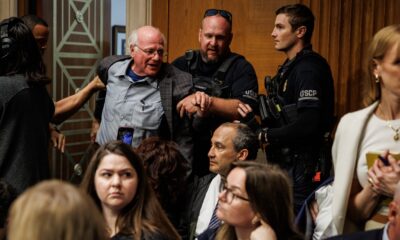
 EU & the World5 days ago
EU & the World5 days agoWho Is Ben Cohen? About the Ben & Jerry’s Co-Founder Who Was Arrested During Senate Hearing
-
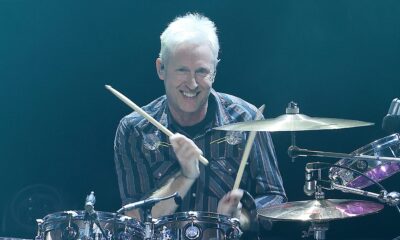
 EU & the World3 days ago
EU & the World3 days agoJosh Freese: 5 Things to Know About the Former Foo Fighters Drummer
-
Travel7 days ago
Crete earthquake: Is it safe to travel to the Greek island following tsunami warning?
-
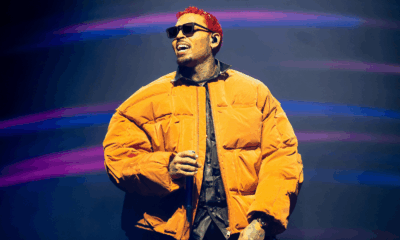
 EU & the World5 days ago
EU & the World5 days agoChris Brown’s Net Worth: How Much Money He Makes Now
-

 Entertainment4 days ago
Entertainment4 days agoEurovision 2025: Music, Politics, and the Final 26 Set Amid Controversy and Spectacle
-
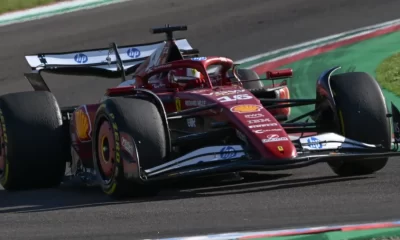
 Sports4 days ago
Sports4 days agoFerrari, opposing views after first day at Imola for Charles Leclerc and Lewis Hamilton









